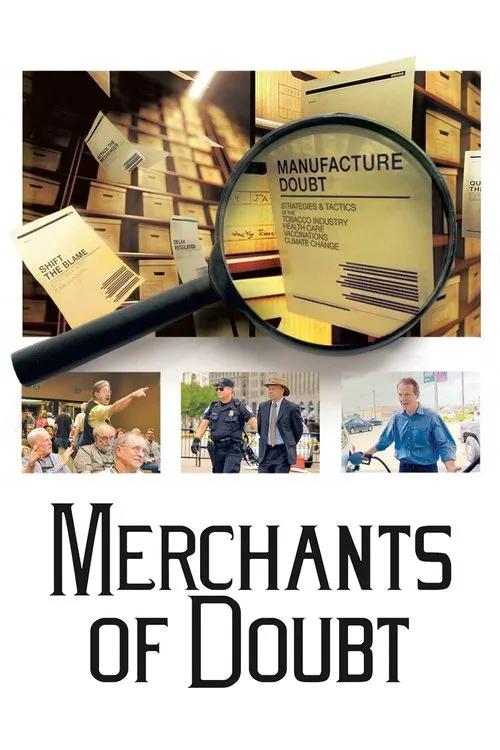Merchants of Doubt

Plot
In "Merchants of Doubt," a documentary film directed by Robert Kenner, the lives and tactics of prominent climate-change deniers are put under the microscope, revealing a sinister plot to deceive the American public on a pressing matter that threatens the very foundation of our existence. The film is based on a book of the same name by Naomi Oreskes and Erik M. Conway, which delves into the ways in which special interest groups and their allies have manipulated scientific research to serve their interests. At the center of the documentary are four key figures - Frederick Seitz, a physicist and former CEO of the National Academy of Sciences; S. Fred Singer, a physicist and environmental scientist; Robert Jastrow, a scientist and former director of the NASA Goddard Institute for Space Studies; and Sherwood Idso, a botanist and former director of research at the U.S. Forestry Service's Irrigation Research Branch. These men, with their impressive credentials and seemingly objective stance, began to question the validity of climate change in the 1990s, sparking a fierce debate that would dominate the public discourse for years to come. However, as the documentary reveals, these men were not motivated by a genuine desire to uncover the truth, but rather by a vested interest in delaying action on climate change. Their claims, which centered on alleged flaws in climate models and the role of natural variability, were repeatedly debunked by the scientific community, but this only seemed to fuel their crusade against the notion of human-induced global warming. The documentary also explores the role of tobacco industry executives and their lawyers, who employed the same tactics to delay regulation of their products in the 1950s and 1960s. Recognizing the parallels between the tobacco industry's campaign to spread doubt about the link between smoking and lung cancer, and the climate change deniers' efforts to cast doubt on the causes of global warming, the filmmakers expose the eerie similarities in their strategies. The tobacco industry's playbook, as outlined in the documentary, involves creating a phony debate on the merits of their product, casting doubt on scientific evidence, and employing public relations campaigns to sway public opinion. Sound familiar? This is precisely the approach employed by the climate change deniers, who have been successful in sowing confusion and undermining the public's trust in the scientific community. The film also delves into the role of right-wing think tanks, such as the American Enterprise Institute (AEI), which have provided a platform for climate change deniers to promote their views and influence policymakers. These think tanks, which have received funding from oil and coal companies, have played a crucial role in promoting doubt and confusion about climate change, often through the use of flawed research and misleading propaganda. One of the most striking revelations in the documentary is the extent to which the climate change deniers have relied on the same tactics employed by the tobacco industry to delay action on climate change. In the 1950s, the tobacco industry launched a campaign to convince the public that there was a debate about the safety of cigarettes, even when there was overwhelming evidence of the link between smoking and lung cancer. Similarly, the climate change deniers have sought to create a similar debate about the causes of global warming, even when the evidence from multiple lines of research confirms that human activities are responsible for the increase in greenhouse gases and associated climate change. Throughout the documentary, the filmmakers present a compelling case against the climate change deniers, who have been accused of using tactics that are dishonest, misleading, and potentially catastrophic for the future of our planet. By exposing the spin doctors behind the scenes, "Merchants of Doubt" paints a disturbing picture of a campaign to deceive the public and delay action on climate change. As the film concludes, the implications of the deniers' tactics become all too clear. While the climate change deniers may have delayed progress on climate policy, the consequences of their actions are becoming increasingly evident. Rising temperatures, more frequent natural disasters, and devastating climate-related disasters are but a few of the many signs of a climate system that is rapidly spinning out of control. In the end, "Merchants of Doubt" is a powerful indictment of the climate change deniers, who have relied on deceit, manipulation, and distortion of the truth to delay action on a pressing issue that threatens our very existence. By exposing the spin doctors behind the scenes, the documentary serves as a timely reminder of the need for critical thinking, scientific literacy, and a commitment to the truth in the face of overwhelming evidence that demands action.
Reviews
Recommendations



